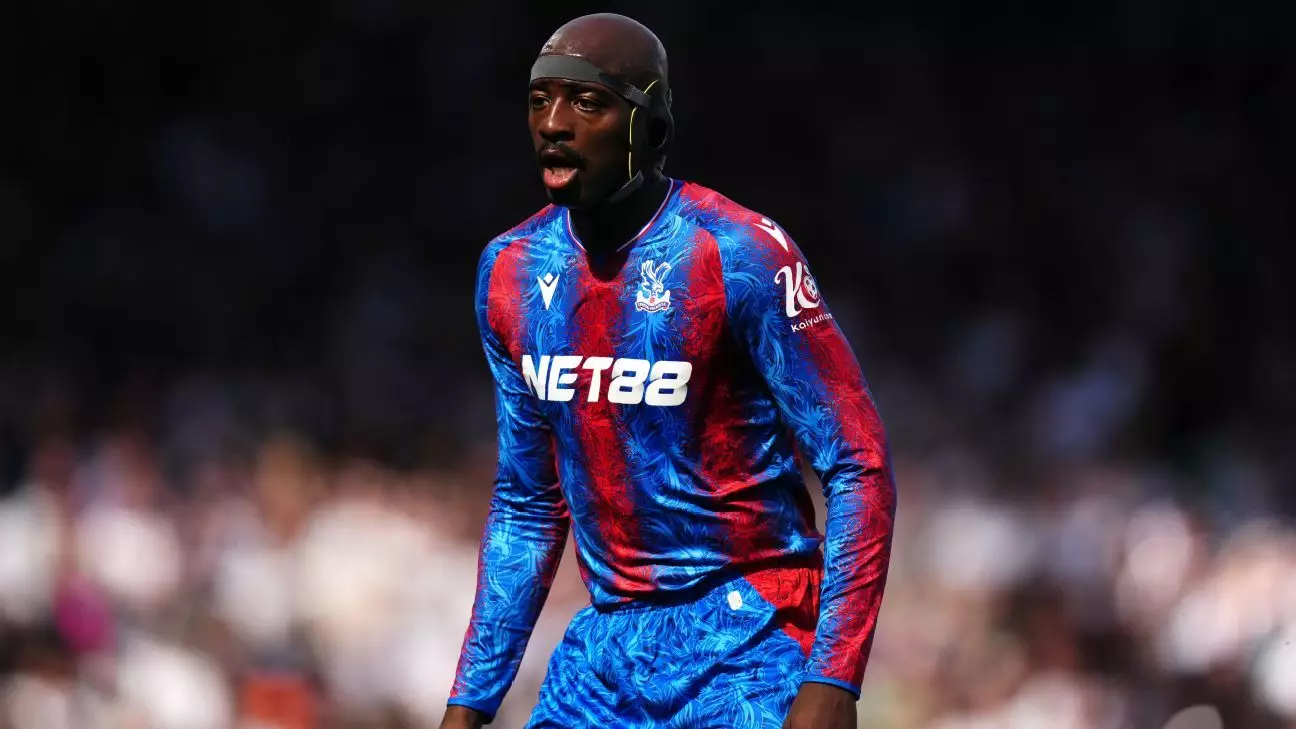Jean-Philippe Mateta’s journey back to the pitch embodies the spirit of resilience in professional sports. Following a harrowing incident during a match against Millwall, where a kicks to the head left his ear lacerated and in need of 25 stitches, Mateta made a striking comeback wearing a protective helmet. On the day of the FA Cup quarterfinal against Fulham, fans were not just witnesses to his return but to a story of courage and determination that transcends the boundaries of the sport itself.
Mateta’s injury was severe, prompting fears of potential fractures and severe cranial injury. Reflecting on the incident in a candid interview, he noted the horror of the situation, “I was afraid I’d have broken bones or blood in my brain, but in fact, my ear was just destroyed.” This statement underscores the physical dangers that athletes face, often glossed over by fans absorbed in the excitement of the game. The fact that Mateta retained his focus and will to return only reinforces the mental strength athletes must muster in the face of adversity.
The Aftermath: Dangers and Camaraderie
The aftermath of the injury saw Mateta receiving appropriate medical attention, coupled with the emotional support typical within team sports. He shared touching interactions with the Millwall goalkeeper, Liam Roberts, who, despite facing backlash and threats for his role in the incident, expressed his concern for Mateta’s well-being. Mateta’s response was commendable: “It is OK, it is football.” His capacity for forgiveness highlights an important aspect of sportsmanship that often gets overshadowed by competition.
In the heat of the moment, mistakes happen, and Mateta’s understanding attitude serves as a reminder of the pressures athletes face — both physically and psychologically. Roberts, who later received an extended ban from the FA, faced the consequences of an unfortunate event that underlines the unpredictability of sports. The respect Mateta showed by reaching out to Roberts speaks volumes about his character and perspective on teamwork, empathy, and shared responsibility in the world of competitive sports.
Restoration and Adaptation
Throughout his rehabilitation, which involved going back to training after a period of individual workouts, Mateta also received valuable support from his club’s management. Palace boss Oliver Glasner noted how the team worked diligently to ensure Mateta’s protection during his return. The choices made to secure his safety — trying on multiple helmets until the right fit was found — were not just about physical protection but a reflection of how a team rallies around its players in times of need.
In a sport where aggressive play is often the norm, the importance of having a supportive team cannot be overstated. Mateta’s recovery was not merely a physical journey; it was an emotional ride that required trust in his teammates and medical staff. Glasner’s comments regarding Mateta’s comfort show the care taken to balance safety with functionality. “When he scores a header tomorrow, then it was the right mask with the right protection,” Glasner asserted, speaking to the duality of an athlete’s need for safety and performance.
The Drive to Succeed
On the pitch, Mateta continues to prove himself, with an impressive tally of 15 goals across all competitions this season. This remarkable statistic is a testament to his skill and determination to not only return from injury but to excel. When an athlete faces and overcomes significant obstacles, it often ignites a fire within them, pushing them to heights they may not have reached under ordinary circumstances.
As Mateta dons a helmet in competitive play, it symbolizes more than just an injury remedy; it serves as a powerful metaphor for overcoming challenges and adapting to constraints. The lighthearted joking that some players have about his ear looking “better than before” further cements the camaraderie and resilience inherent in the team.
In a world rife with distractions and negative narratives, Mateta stands as an inspiring figure — a reminder that the true essence of sport lies not only in winning but in the human capacity to persevere, adapt, and ultimately triumph over adversity.

